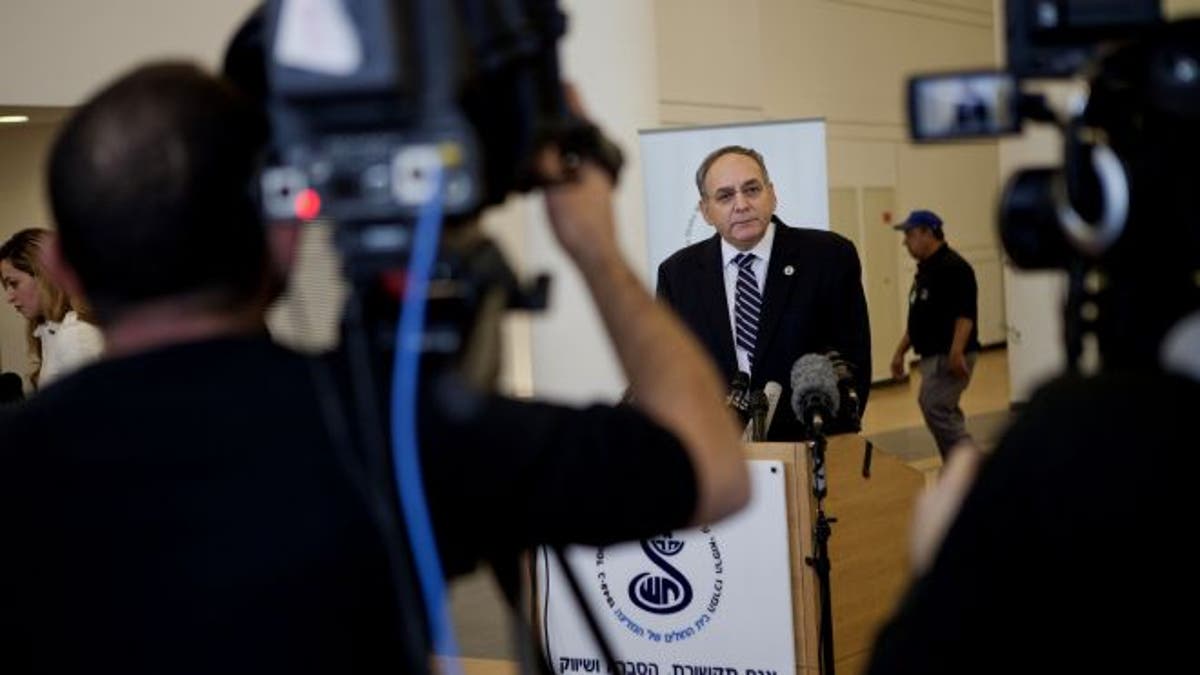
January 3, 2014: Zeev Rotstein, the director of Tel Hashomer hospital where the comatose former Israeli prime minister Ariel Sharon is being treated, informs the media about Sharon's health condition at the hospital near Tel Aviv (AP)
The director of the Israeli hospital treating former Prime Minister Ariel Sharon said Sunday that the 85-year-old is fighting for his life and doctors are pessimistic about his prognosis.
Dr. Zeev Rotstein of the Sheba Medical Center near Tel Aviv, told reporters that doctors had managed to stabilize Sharon's circulatory system over the weekend. But Rotstein said there is no improvement in Sharon's kidney function or with other vital organs that have been slowly declining since last week.
After saying that Sharon was fighting like "a true lion," Rotstein said "Our general assessment is there is no way to overcome this crisis ... I am perhaps more pessimistic than I was before,'' according to Reuters.
The doctor called Sharon's condition critical and life-threatening and added that Sharon's two sons were at their father's bedside.
The 85-year-old Sharon has been in a coma since 2006 after a devastating stroke incapacitated him at the peak of his political power.
As one of Israel's most famous generals, Sharon was known for bold tactics and an occasional refusal to obey orders.
Sharon is credited with helping turn the tide of the 1973 Mideast war when Arab armies launched a surprise attack on Israel on the solemn fasting day of Yom Kippur, causing large Israeli casualties. He led an Israeli force across the Suez Canal, trapping part of the Egyptian army and turning the war in Israel's favor.
As a politician, he became known as "the bulldozer" -- a man contemptuous of his critics while also capable of getting things done. He was elected prime minister in 2001.
In mid-2005, he directed a unilateral withdrawal of Israeli troops and settlers from the Gaza Strip, ending a 38-year military control of the territory. It was a shocking turnaround for a man who had been a leading player in building Jewish settlements in captured territories.
He later bolted from his hard-line Likud Party and established the centrist Kadima Party. It seemed he was on his way to an easy re-election when he suffered the stroke in January 2006.
After spending months in the Jerusalem hospital where he was initially treated, Sharon was transferred to the long-term care facility at Tel Hashomer hospital. He was taken home briefly at one point but was returned several days later to the hospital, where he has been since.
The Associated Press contributed to this report.
